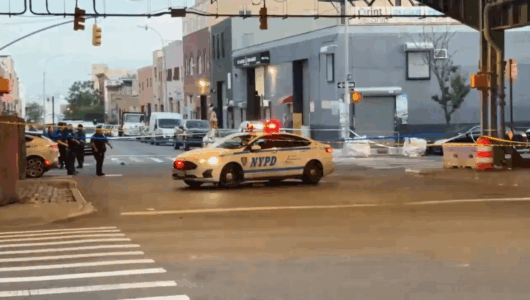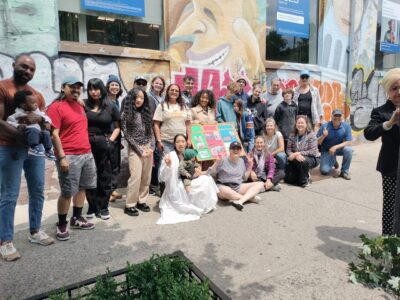Several of the candidates running in the special election for New York City public advocate criticized Mayor Bill de Blasio’s controversial proposal to scrap the Specialized High School Admissions Test (SHSAT), charging that the mayor was going about the task of increasing racial diversity in elite schools the wrong way.
Jumaane Williams, Rafael Espinal, David Eisenbach, Jared Rich and Benjamin Yee all spoke out about the de Blasio proposal at a Feb. 13 candidates’ forum. The event was sponsored by the United Progressive Democratic Club and took place at the club at 29 Bay 25th St. in Bath Beach.
Assemblymember William Colton, who organized the forum, said the fate of the SHSAT was a major topic of discussion at the debate. Colton, a Democrat who represents Gravesend and parts of Bensonhurst, has been highly critical of the mayor over the SHSAT issue.
“David Eisenbach spoke at the Southern Brooklyn Public Advocate debate in support of keeping SHSAT and stated that he would stand up to Mayor de Blasio in his failed education plans. Benjamin Yee, Rafael Espinal, and Jumaane Williams were also in favor of keeping SHSAT. Jared Rich stated he was opposed to eliminating SHSAT now but he added that after efforts were made to improve the quality of education he would consider changing SHSAT as the sole criteria as it was a complicated issue,” Colton said.
Williams and Espinal, who are both Democratic City Council members, are considered among the top tier candidates for public advocate.
But the forum gave all of the candidates an opportunity to get their points across to voters.
“I don’t understand why the mayor is messing with great schools while we have so many failing schools,” said Eisenbach, a history professor at Columbia University. “This is not a solution.”
Instead of changing the admissions process to the city’s elite high schools, the mayor should be concentrating his efforts on reducing class size and getting parents more involved in their children’s schools, according to Eisenbach.
Rich, a lawyer specializing in housing cases, called the SHSAT situation “a complex issue” and called for additional funding to pay for test prep courses for underprivileged students. The test shouldn’t be eliminated, he said, noting that students who work hard and study for the exam should be respected. “We’ve got to reward the kids who work hard. But we have to acknowledge that some kids do not have the same advantage,” he said.
Yee, who teaches coding and is the Democratic district leader of the 66th Assembly District in Greenwich Village, charged that de Blasio should consider changing the education system for the grades prior to high school. “You cannot fix outcomes in the high schools,” said Yee, who is a graduate of the Bronx High School of Science.
It would be better for the mayor to “fix the funding formulas for elementary schools and middle schools,” Yee said. That would give students in all schools a chance, he said.
In an effort to secure more racial diversity in the city’s top high schools, de Blasio has proposed eliminating the SHSAT as the sole standard to gain admission and replace it with a system in which elite high schools would be required to reserve a certain number of seats for the top performers from each middle school.
The proposal would give African-Americans, Latinos and other minority students a better chance of gaining admission, supporters of the mayor’s plan said. Currently, nine percent of the students in elite high schools are black and Latino. But those students make up 68 percent of all New York City high school students and are under-represented in the top schools, according to the mayor’s office.
But opponents have argued that many of the students getting into schools like Brooklyn Technical High School and Stuyvesant High School are Asian-Americans and that they gain admission by working hard and studying to prepare for the SHSAT.
Changing the system would be unfair to them, opponents of the mayor charged.
“The public advocate office must be the voice to protect people to fight on issues like quality education for our children, including the fight to keep SHSAT, expanding gifted programs for all high performing children and quality remedial programs for underperforming children to ensure all children will achieve their highest growth of quality education,” of life for all New York City people,” Colton said. The United Progressive Democratic Club is Colton’s home club.
Williams, Espinal, Eisenbach, Rich and Yee are five of the candidates in a crowded field of more than a dozen hopefuls running in the non-partisan special election on Feb. 26 to fill the public advocate’s seat left vacant when Letitia James won election as New York State attorney general in November.
The field of candidates includes City Councilmember Eric Ulrich, Assemblymembers Michael Blake and Daniel O’Donnell and former Council Speaker Melissa Mark-Viverito.

 Man arrested after hit-and-run killed two in Sunset Park
Man arrested after hit-and-run killed two in Sunset Park  Sunset Park residents look to form new mural at 54th Street
Sunset Park residents look to form new mural at 54th Street